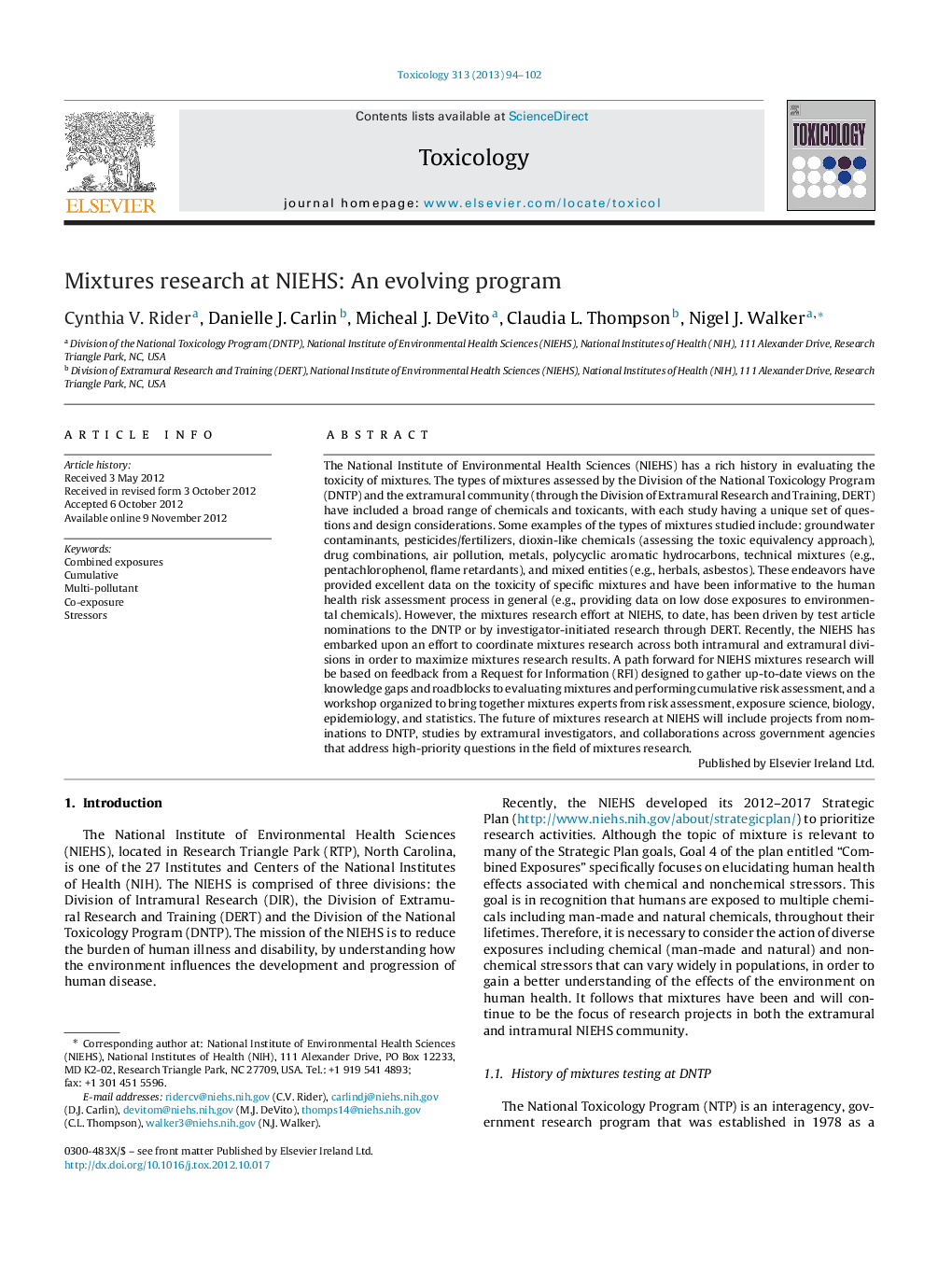| Article ID | Journal | Published Year | Pages | File Type |
|---|---|---|---|---|
| 2595646 | Toxicology | 2013 | 9 Pages |
The National Institute of Environmental Health Sciences (NIEHS) has a rich history in evaluating the toxicity of mixtures. The types of mixtures assessed by the Division of the National Toxicology Program (DNTP) and the extramural community (through the Division of Extramural Research and Training, DERT) have included a broad range of chemicals and toxicants, with each study having a unique set of questions and design considerations. Some examples of the types of mixtures studied include: groundwater contaminants, pesticides/fertilizers, dioxin-like chemicals (assessing the toxic equivalency approach), drug combinations, air pollution, metals, polycyclic aromatic hydrocarbons, technical mixtures (e.g., pentachlorophenol, flame retardants), and mixed entities (e.g., herbals, asbestos). These endeavors have provided excellent data on the toxicity of specific mixtures and have been informative to the human health risk assessment process in general (e.g., providing data on low dose exposures to environmental chemicals). However, the mixtures research effort at NIEHS, to date, has been driven by test article nominations to the DNTP or by investigator-initiated research through DERT. Recently, the NIEHS has embarked upon an effort to coordinate mixtures research across both intramural and extramural divisions in order to maximize mixtures research results. A path forward for NIEHS mixtures research will be based on feedback from a Request for Information (RFI) designed to gather up-to-date views on the knowledge gaps and roadblocks to evaluating mixtures and performing cumulative risk assessment, and a workshop organized to bring together mixtures experts from risk assessment, exposure science, biology, epidemiology, and statistics. The future of mixtures research at NIEHS will include projects from nominations to DNTP, studies by extramural investigators, and collaborations across government agencies that address high-priority questions in the field of mixtures research.
